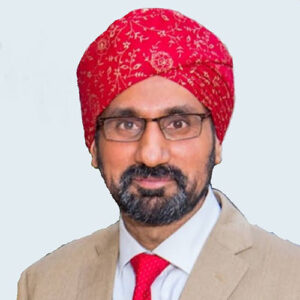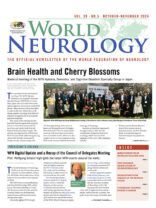International collaboration provides a potential future platform for bilateral knowledge exchange.

Dilraj Singh Sokhi
By Dilraj Singh Sokhi
The dire lack of neurologists in Africa has been well documented over the decades. However, the situation has, unfortunately, scarcely changed. Uganda has six neurologists for a population of 47 million. Although there are growing multifaceted movements on the continent to address this workforce gap, it would take generations to reach levels stipulated by the World Health Organization (WHO).
There are a handful of postgraduate neurology training centers in the region, but only one in East Africa (Nairobi, Kenya) and none in Uganda. Education about the nervous system needs to continue and expand in the region, especially given its disproportionately large burden of neurological disease. Innovation is thus required in delivering this education, and we outline here one such successful endeavor in Uganda.
The Organization of Islamic Cooperation (OIC) is an intergovernmental organization with a membership of 57 states spread over four continents. It aims to promote international peace and harmony globally, including through supporting scientific knowledge exchange via its Standing Committee on Scientific and Technological Cooperation (COMSTECH). The Science, Technology and Innovation (STI) arm of COMSTECH recognizes the need for improving medical sciences knowledge dissemination. In this regard, it brought three neurologists together to deliver a one-day certificate course in neurology at two centers in Uganda that would normally not have regular access to neurology expertise.
Our first stop was the Equator University of Science and Technology (EQUSaT), which was founded in 2021 through mutual agreement between the Republic of Uganda and the University of Lahore in Pakistan. The pioneering medical and dental students had recently commenced their clinical rotations, and it was an opportune time to discuss and demonstrate the clinical skills required for assessing patients with neurological conditions.
We presented a blended variety of talks, from didactic lectures to case-based hands-on teaching. The timetable covered the spectrum of neurology, including neurocritical care elements, from clinically relevant neuroanatomy and neuroimaging to topic-based lectures and discussions on the most common conditions (as identified by the Global Burden of Disease findings): epilepsy, headache, infections of the nervous system, and stroke. Students and doctors from neighboring colleges and hospitals were invited, and we undertook pre- and post-course evaluations to help learners assess the impact the course made on their neurology knowledge.
We replicated the workshop in the more established OIC-cofounded Islamic University in Uganda (IUIU), at the Habib Medical School in Kampala. The chief guest was the Deputy High Commissioner of Pakistan in Uganda, His Excellence Bilal Abdul Mohsin. The efforts of delivering the course were recognized as a potential future platform for ongoing bilateral knowledge exchange, collaboration, and innovation, as well as strengthening the bonds between Pakistan and Uganda.
Aga Khan University in Karachi already delivers an annual online certificate course in neurology, which is open for anyone to enroll at a modest price. However, neurology remains a clinical specialty. Therefore bedside teaching and examination remain a vital part of training, as we did in the courses in Uganda. Simple but impactful multi-country ventures such as these are important examples of how to extend the reach of neurology education in resource-limited settings such as East Africa. They are well aligned with the educational mission of the World Federation of Neurology. •
Dr. Dilraj Singh Sokhi is associate professor and associate fellowship director of neurology at Aga Khan University in Kenya.
